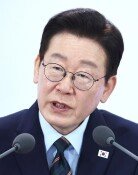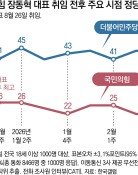Pentagon chief to visit S. Korea next week
Pentagon chief to visit S. Korea next week
Posted November. 09, 2019 08:09,
Updated November. 09, 2019 08:09
U.S. Defense Secretary Mark Esper will travel to South Korea next week, in an apparent move to continue pressure on Seoul to revisit its decision to end the General Security of Military Information Agreement (GSOMIA), which is scheduled to expire on Nov. 23.
Pentagon spokesperson Jonathan Hoffman said Thursday (local time) that Secretary Esper “will travel to Seoul, Bangkok, Manila and Hanoi” on next Wednesday and will “assess common challenges such as the militarization of the South China Sea and predatory Chinese commercial and economic activities” with “allies and partners in the region who share our (U.S.) vision for a free and open Indo-Pacific.” Esper will arrive in Seoul on Thursday and attend the 51st U.S.-Republic of Korea Security Consultative Meeting (SCM). Hoffman said that he can “practically guarantee” that the GSOMIA will be part of their conversations during Esper’s stay in South Korea.
In the meantime, South Korea’s defense ministry did not mention the security pact with Japan in its press release on Friday, saying that the two sides will discuss at the upcoming SCM the security circumstances on the Korean Peninsula and policy coordination, a transfer of the wartime operational control, future security cooperation, and a relocation of the U.S troops stationed in South Korea. Some speculate that it would have been difficult for the ministry to include the GSOMIA in the agenda as it has stressed that there will be no extension of the deal unless Tokyo first withdraws export controls against Seoul.
This will be the second visit to Seoul by Esper, who assumed office in late July. He first visited South Korea and Japan back in August, but his latest itinerary does not include Tokyo, stoking speculation that his trip is aimed at urging Seoul to revisit its choice to not renew the GSOMIA. Like U.S. officials who recently traveled to Seoul including David Stilwell, U.S. Assistant Secretary of State for East Asian and Pacific Affairs, James DeHart, the top U.S. negotiator in defense cost-sharing negotiations, and Keith Krach, under secretary of state for economic growth, energy and environment, Esper is also likely to highlight the U.S. strategy for the Indo-Pacific and ask Seoul to increase its share of the defense costs.
lightee@donga.com · journari@donga.com



![[단독]폴란드, 韓 해군 최초 잠수함 ‘장보고함’ 무상 양도 안받기로](https://dimg.donga.com/c/138/175/90/1/wps/NEWS/IMAGE/2026/02/27/133437397.1.jpg)
![‘노인 냄새’ 씻으면 없어질까?…“목욕보다 식단이 더 중요”[노화설계]](https://dimg.donga.com/c/138/175/90/1/wps/NEWS/IMAGE/2026/02/27/133434557.3.jpg)


